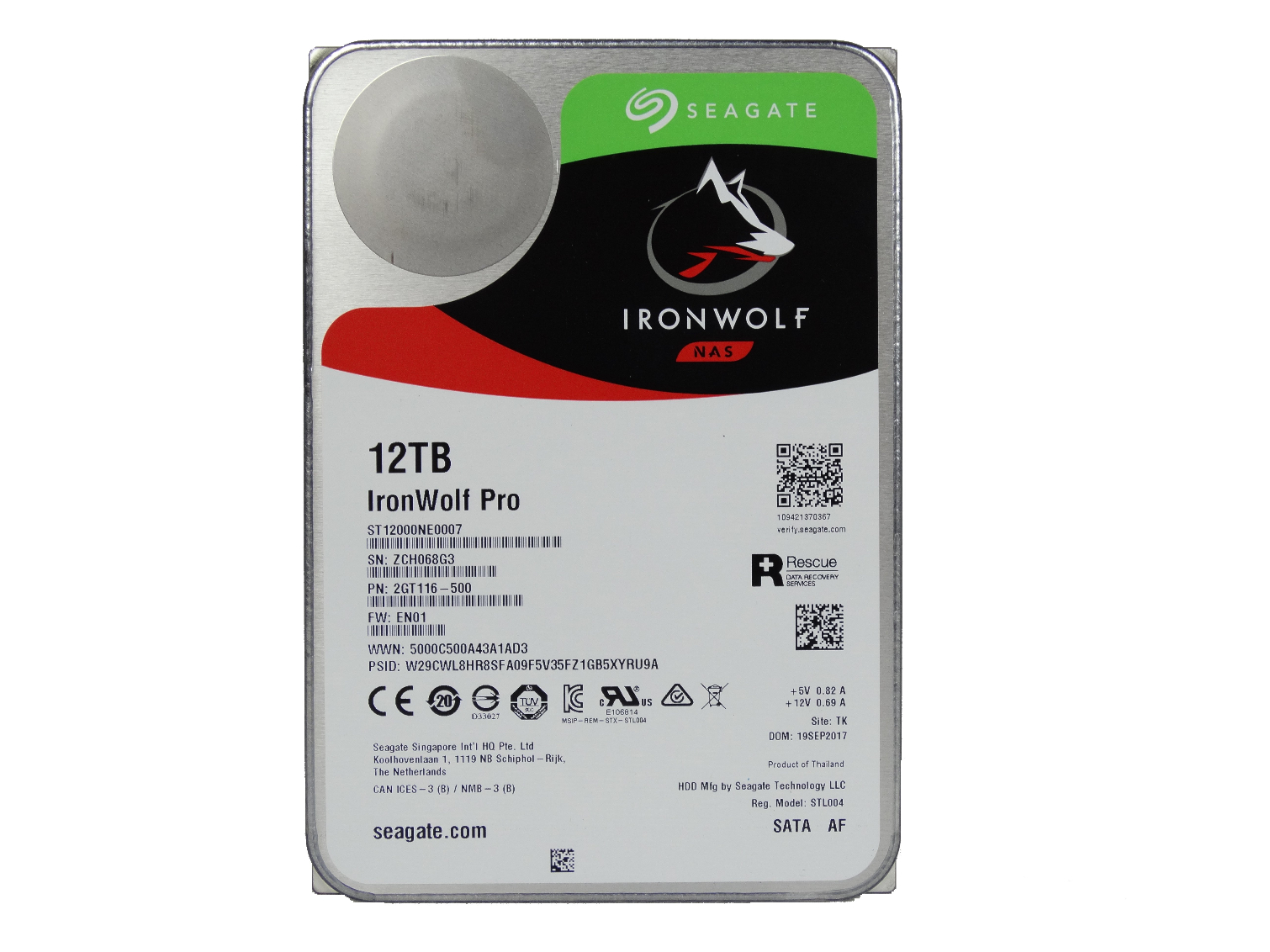Seagate IronWolf Pro 12TB Review: The Best NAS Drive?
Why you can trust Tom's Hardware
Conclusion
The Seagate IronWolf Pro got lost in the shuffle after the company elevated the basic IronWolf series to 7,200-RPM. The two models have nearly identical performance, but the Pro model has features that justify the extra expense.
To some degree, Seagate has dissuaded performance enthusiasts from buying the IronWolf Pro. For decades a number of us would gladly pay more for a 7,200-RPM drive, but now we get high performance at 5,400-RPM prices. But in the grand scheme of things, enthusiasts are a sliver of the market compared to the number of drives bought by businesses and enterprises. We certainly won't complain about the IronWolf's dominant position, either. Seagate made the series more attractive than the HGST, Toshiba, and Western Digital NAS-focused products.
Seagate's updated IronWolf series pushes the IronWolf Pro exclusively to systems with a plethora of drives. There are very few desktop NAS or DAS that use more than eight drives. As a result, the Pro model targets rackmount NAS and one-off specialty devices like the LaCie 12big Thunderbolt 3 system that's designed for professional users.
The IronWolf Pro has a few exclusive features. The drives have a 300TB-per-year rating that comes with an increased load/unload rating of 600,000 cycles. You also get a five-year warranty and a two-year data rescue plan that increases the overall value even if you are lucky enough never to need it.
Seagate's changes to its product line make it less likely that you'll use the recovery service. Low-quality products hurt the reputation of many of the HDD manufacturers, so Seagate had largely moved away from making low-cost HDDs. Quality disk drives are back, but you get what you pay for. Expect to pay quite a bit for a high-capacity drive like the one we tested today. You can find this type of quality for much less, but you'll also get much less capacity in the $200 range.
Disk drives have never been faster. Seagate's new enterprise 7,200-RPM drive delivers 261 MB/s of throughput, which is just 11 MB/s more than the 12TB IronWolf and IronWolf Pro. Random performance is still much lower than flash-based products, but advanced technologies and improvements to the drive cache have increased performance, and as an extension, the user experience. These products work best as a large secondary storage volume, and SSDs are still far too expensive to fulfill that role.
MORE: Best SSDs
Get Tom's Hardware's best news and in-depth reviews, straight to your inbox.
MORE: How We Test HDDs And SSDs
MORE: All SSD Content

Chris Ramseyer was a senior contributing editor for Tom's Hardware. He tested and reviewed consumer storage.
-
shrapnel_indie Hmmm... a takeaway from this seems like WD has intentionally made sure the HGST brand trails their own WD Reds in performance. Shame on them. (Of course, this might be model/capacity specific.)Reply -
svan71 Still waiting for hard drive prices to come down, or was there another earthquake or typhoon?Reply -
2Be_or_Not2Be Ignoring the warranty/data recovery service, does the Ironwolf Pro offer NAS-specific features that justify going with it over the regular Ironwolf models?Reply
I saw the blurb about RV sensors, but the non-Pro model has it as well. The only thing I can see that otherwise differentiates them is the workload rating (180TB/yr vs 300TB/yr). -
dextermat We need reliability test with huge hard drive. Considering the impact of losing important data. Also failing rate %.Reply -
achilles174 The impact is losing data is not unique to large drives and the solution is the same as it's always been - redundancy, whether it's RAID5/6 or ZFS. Yes, maybe you don't want to spend $1000 on two 12TB drives just for redundancy, but now you have a dollar amount to go with how important the data really is to you. In an 8 drive setup you'd still get 6x12 = 72TB.Reply -
Jesse_20 **EDIT:**Reply
Refreshing the page raised the $219 price tag on the 12TB to $469, a bit more expected. -
Co BIY I'd like to see an article with a 2 TB HDD paired with Intel Optane memory cache up against the SSD drives.Reply
With the proliferation of video especially security video I wouldn't be too surprised if HDDs set new sales records despite SSDs. -
JP76 Moved away from Seagate a few years ago after a bad experience with two of their drives on my NAS. I currently own 12 WD Red hard drives (2Tb and 3Tb) and had zero issues with them over the last few years. Other people might have a different experience, but I would take them over the Seagates anytime (even if they're 5,400-RPMs).Reply -
jasonelmore I don't mind paying $400 for a drive if it'll work for 5 years or more. Seagate's reputation has seen it's ups and downs. It was a good idea to invest in quality materials and engineering, and then back that reliability up with recovery services.Reply
